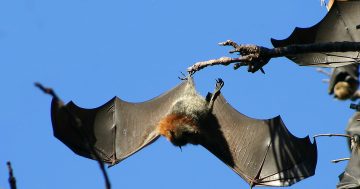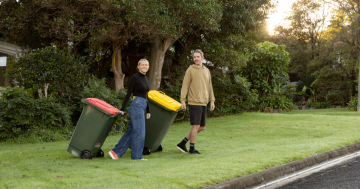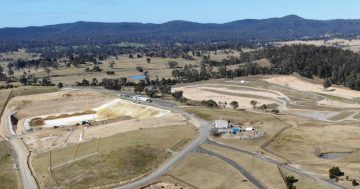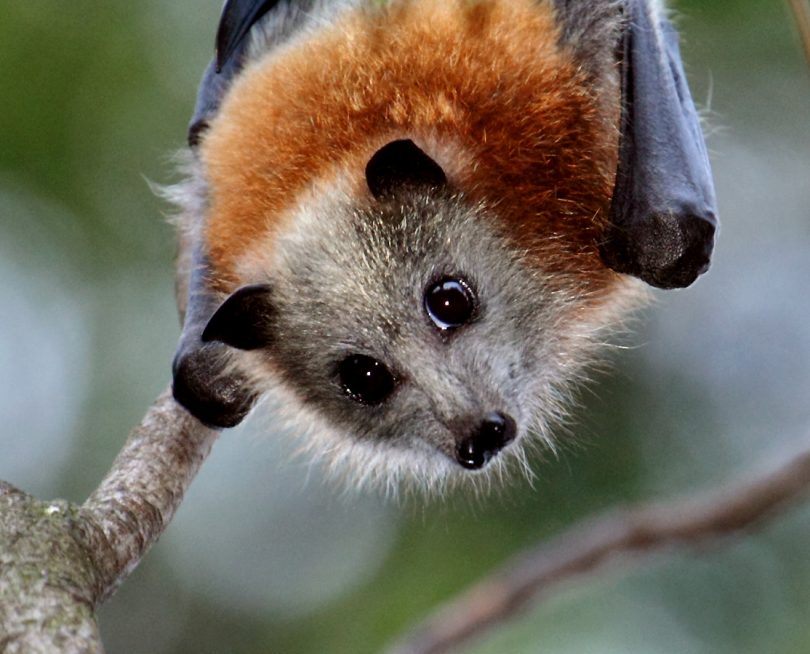
Flying foxes have 16 camps spread across the Bega Valley. Photo: Eurobodalla Shire Council.
Love them or hate them, flying foxes are part of the Far South Coast and the region’s council wants to know what you think of its new draft plan to manage the local populations over the next five years.
Grey-headed flying foxes have 16 camps across the Bega Valley, including the nationally important camp at Glebe Lagoon in Bega, which saw a record 44,000 animals drop in during January 2021.
Bega Valley Shire Council has a range of management actions in the draft five-year plan, but notes how any actions at Glebe Lagoon could have consequences for other camps in the region.
When it comes to the impacts of noise, smell or faecal matter, the council could allow water-restriction exemptions to certain residents to allow them to clean their properties.
Or, high-powered hoses could be bought and lent to neighbouring properties adjacent to camps to help clean up the droppings.
Another idea is partnering with a researcher to determine whether artificial roost space could be used to encourage the animals to relocate away from homes and businesses.
The council has already started investigating the creation of small buffers between homes and the Glebe camp. This could include screening planting or canopy-mounted sprinklers.
It is also investigating whether sprinklers are useful in reducing the impact of heat-stress events that can kill the animals.
The report says attempts to relocate flying foxes are extremely costly and often splinter a camp to multiple undesirable locations. They will also attempt to recolonise their preferred camp site when resources are available.
The council’s planning and sustainability manager Cecily Hancock said flying foxes were critical for the health of our forests as they were key pollinators of numerous native species.
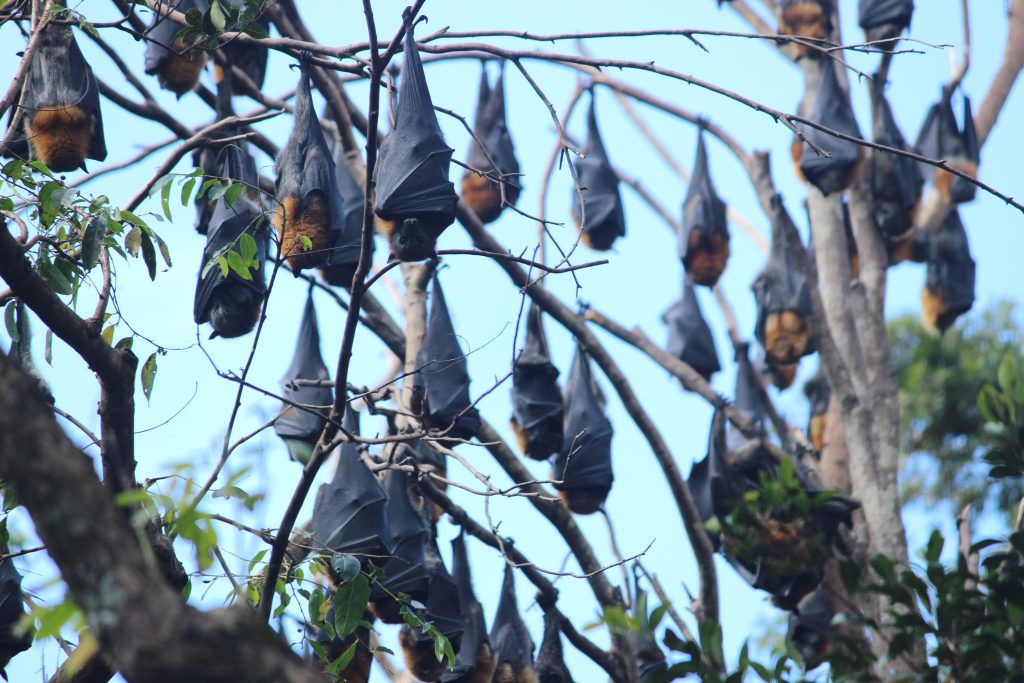
Grey-headed flying foxes are a threatened species that needs protection. Photo: Eurobodalla Shire Council.
“It is believed the combination of numerous roosting trees above a permanent water body is one of the key attractions of Glebe Lagoon,” she said.
“Flying foxes need open stretches of water to drink and enjoy the cooling effects of the water on hot days.
“Glebe Lagoon is also central to feeding resources around the broader Bega area.”
The council’s draft plan says flying foxes are increasingly roosting and foraging within urban areas, partly due to habitat loss, the reliable seasonal food resources on residential and public lands and access to urban wetlands with suitable roosting vegetation.
But it also notes that living near a camp can be challenging for communities, with impacts associated with noise, odour, faeces, damage to vegetation and property, and concern about potential health risks.
“The draft five-year plan outlines issues of concern to the local community and identifies feasible management actions to reduce impacts on the community while promoting the conservation of the flying fox camp,” Ms Hancock said.
“We are proposing an adaptive, flexible approach to flying-fox management informed by ongoing monitoring of the camp and the effectiveness of our management actions.
“We would like feedback on the actions that could work well and those that may need further consideration.”
The 16 flying-fox camps are at Wallaga Lake, Cuttagee, Cobargo, Bunga Head, Chinnock, Glebe Lagoon, Candelo (2), Pambula Wetlands, Pambula CBD, South Pambula, Pambula Industrial Estate, Bald Hills, Towamba and Eden (2).
The number at each camp is seasonally variable and some camps are regularly occupied while others are rarely used.
The plan is available on the council’s website. Feedback can be submitted online or emailed to [email protected] by 3 December.








